Key highlights
- Understand the real difference between unlimited and unmetered bandwidth to avoid hidden throttling, vague limits or surprise costs.
- Know what hardware, network speed and security features matter most when choosing a high-performance dedicated server.
- Learn how unmetered bandwidth improves uptime, page load speed and scalability during high-traffic events or peak usage periods.
- Explore real-world use cases—like streaming, SaaS, eCommerce and gaming—that benefit most from unmetered dedicated server hosting.
- Uncover how Bluehost is a reliable web hosting provider and what to look for in server hosting based on your traffic and technical needs.
What is unmetered bandwidth and is it really worth it? If you’re exploring dedicated servers with unmetered bandwidth, this question has likely crossed your mind more than once.
Perhaps your site is growing faster than expected. Maybe your current host charged you extra for using “too much.” Or maybe, you’re just tired of limits you didn’t realize existed.
The truth? Not all dedicated servers come with unmetered bandwidth and not all unmetered plans mean the same thing.
In this guide, we’ll break down exactly what unmetered bandwidth is and how it works in dedicated server hosting. You’ll also find side-by-side comparisons of top providers to help you choose the right plan without second-guessing.
Let’s cut through the jargon — and make sure you’re not paying more for less.
TL;DR: Top dedicated server providers with unmetered bandwidth (2026)
| Provider | Bandwidth | Support | Root access | Highlight | Free domain | Free SSL |
| Bluehost | Unmetered (1Gbps) | 24/7 expert support | Yes | Free domain + SSL with full cPanel access | Yes | Yes |
| Liquid Web | Unmetered (1Gbps) | Fully managed | Yes | 100% network uptime SLA + managed firewall | No | Yes |
| OVHcloud | Unmetered (500Mbps–1Gbps) | Standard with anti-DDoS | Yes | Global datacenters + customizable builds | No | No |
| Hetzner | Unmetered (1Gbps) | Basic | Yes | Cost-effective servers with powerful CPUs | No | No |
| Hostwinds | Unmetered (1Gbps) | Tiered support | Yes | Fully customizable with nightly backups | No | Yes |
| ServerMania | Unmetered (up to 10Gbps) | 15-min SLA | Yes | Enterprise-grade performance with custom builds | No | Yes |
| DreamHost | Unmetered (1Gbps) | 24/7 tech | Yes | Developer-focused tools + unlimited MySQL | No | Yes |
| Ultahost | Unmetered (1Gbps) | 24/7 live chat | Yes | Free migration + daily backups included | Yes | Yes |
| Provider | Bandwidth | Support | Root Access | Free Domain | Free SSL | Highlight |
| Bluehost | Unmetered (1Gbps) | 24/7 expert support | Yes | ✅ Yes | ✅ Yes | Full cPanel access |
| Liquid Web | Unmetered (1Gbps) | Fully managed | Yes | ❌ No | ✅ Yes | 100% network uptime SLA + managed firewall |
| OVHcloud | Unmetered (500Mbps–1Gbps) | Standard with anti-DDoS | Yes | ❌ No | ❌ No | Global datacenters + customizable builds |
| Hetzner | Unmetered (1Gbps) | Basic | Yes | ❌ No | ❌ No | Cost-effective servers with powerful CPUs |
| Hostwinds | Unmetered (1Gbps) | Tiered support | Yes | ❌ No | ✅ Yes | Fully customizable with nightly backups |
| ServerMania | Unmetered (up to 10Gbps) | 15-min SLA | Yes | ❌ No | ✅ Yes | Enterprise-grade performance with custom builds |
| DreamHost | Unmetered (1Gbps) | 24/7 tech | Yes | ❌ No | ✅ Yes | Developer-focused tools + unlimited MySQL |
| Ultahost | Unmetered (1Gbps) | 24/7 live chat | Yes | ✅ Yes | ✅ Yes | Free migration + daily backups included |
What are dedicated servers with unmetered bandwidth?
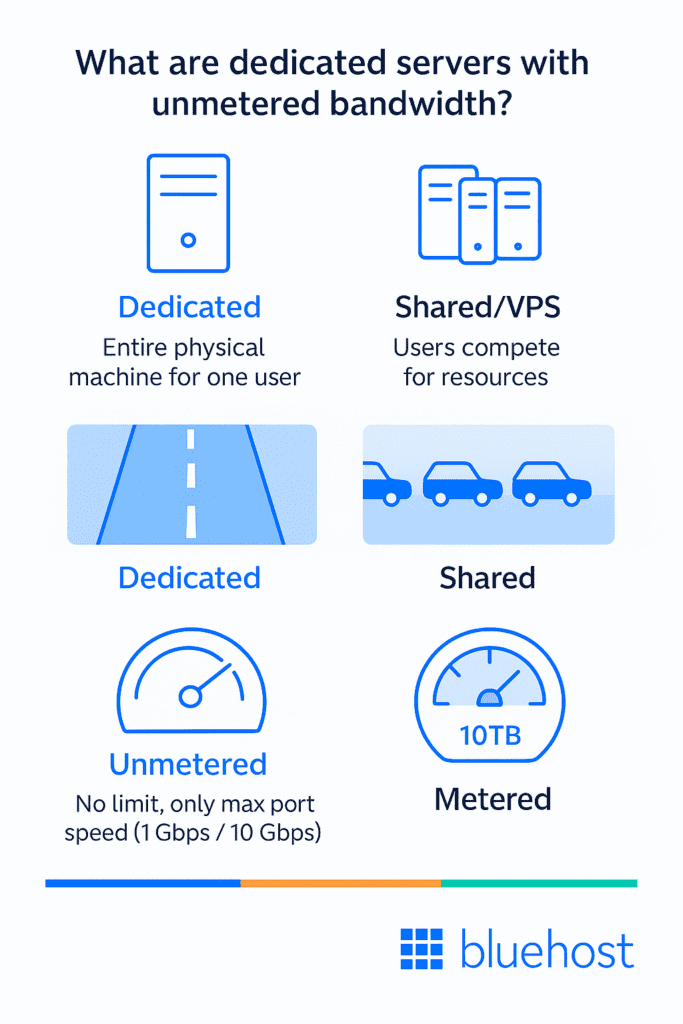
Dedicated servers with unmetered bandwidth are physical machines entirely allocated to a single user, with no data transfer limits to worry about.
Unlike shared or virtual private servers (VPS), a dedicated server gives you full control over resources. You get 100% of the CPU, memory, disk space and bandwidth—with no competition from other users. It’s like owning the entire freeway instead of renting a single lane.
In most hosting plans, bandwidth is measured and capped—you pay extra if your website exceeds a set data limit, like 10TB per month. With unmetered plans, your provider doesn’t track the amount of data your website transfers. Instead, you’re limited only by the maximum port speed (for example, 1 Gbps or 10 Gbps).
Also read: Shared vs Dedicated Hosting: Select the Right Web Hosting Solution
What are the key features to look for?
Choosing the correct dedicated server with unmetered bandwidth isn’t just about raw power. It’s about picking a setup that matches your traffic demands, performance goals and long-term business growth. Let’s break down the features that actually matter when you’re making that decision.
1. Hardware specifications
Your server is only as good as the hardware behind it. Strong processors, high RAM and fast storage equal consistent performance. Go for enterprise-grade CPUs like Intel Xeon or AMD EPYC that handle multitasking and peak traffic with ease. Memory matters too—aim for 32GB RAM or more if you run eCommerce, media-rich or high traffic hosting environments. SSD and NVMe drives make a real difference. They reduce load times, improve responsiveness and help your site scale smoothly.
Also read: Introducing NVMe Hosting | Get Higher Speed on VPS & Dedicated Server Plans!
2. Network speed
Having unmetered bandwidth is powerful, but your connection speed decides how fast data moves between your server and visitors. A 1 Gbps or 10 Gbps port can deliver fast, stable access even when thousands are online. Don’t overlook network infrastructure.
Confirm that your provider offers redundant connections, stable routing and low-latency paths across global locations. Otherwise, even without a bandwidth cap, your site could still suffer from slowdowns or packet loss.
3. Data center locations and redundancy
Where your server lives directly affects how fast users can access your website. Select a provider with data centers located near your target audience. Global distribution enhances response times and facilitates compliance with regional standards.
But location isn’t enough. Redundant power, cooling and internet pathways are essential. A single point of failure shouldn’t take your site down. Always verify the presence of backup systems and failover capacity within the data center environment.
4. Support and security features
Reliable support and strong security aren’t optional—they’re essential for any business relying on server hosting. Look for 24/7 human support, not just knowledge bases or automated replies. Can you reach someone fast during downtime? On the security side, demand features like DDoS protection, proactive monitoring, firewall controls and root access isolation.
Your server should defend itself while you stay focused on growth. The right support can make or break your experience when it truly counts.
Why choose dedicated servers with unmetered bandwidth?
If your website or app is starting to outgrow shared or VPS hosting, it’s time to consider something more stable and scalable. Dedicated servers with unmetered bandwidth offer the performance, flexibility and predictability that high-demand websites truly need. Let’s explore what makes them the go-to choice for growing digital platforms.
1. Performance and reliability
When your server is fully dedicated to your site, there’s no competition for CPU, memory or bandwidth. That translates to consistent performance, no matter the time of day or the number of users online.
Whether you’re hosting video content, managing large databases or powering real-time user interactions, speed and uptime matter. With unmetered bandwidth guaranteed bandwidth delivery, you’re not worried about exceeding limits or getting throttled mid-month. You get a guaranteed connection and the resources to maintain high performance even during peak traffic periods.
2. Scalability for high-traffic websites/applications
Traffic spikes shouldn’t crash your site or freeze your checkout page. Let’s say you’re running a ticketing platform that handles thousands of visitors during big event launches. If your hosting caps bandwidth or CPU usage, users may face timeouts, slowdowns or failed transactions. That means lost sales and frustrated customers.
Dedicated servers with unmetered bandwidth scale with your growth. You can upgrade your hardware, adjust port speed and handle more users, without reconfiguring your entire infrastructure.
This is where high traffic hosting becomes essential, ensuring consistent performance during sudden traffic surges or growth period.
3. Cost predictability and avoiding overage fees
If you’ve used metered hosting before, you know the drill. You’re charged for every gigabyte over your monthly limit. Sometimes that extra traffic isn’t even your fault—it could be bots, data scrapers or background updates.
Unmetered bandwidth changes the game. You pay a fixed monthly rate regardless of how much data your site uses. That means no unexpected invoices or guesswork when budgeting for hosting.
Also read: Best Dedicated Servers for Startups in 2025: Affordable & Scalable Hosting Solutions
4. Use cases
Still wondering if dedicated servers with unmetered bandwidth are the right choice for your setup? Let’s walk through some everyday examples where they truly shine.
1. Streaming platforms
- Example: Vimeo, Twitch
- Why it works: These platforms rely on unmetered bandwidth to avoid lags, buffering and massive overage fees when millions tune in. If you’re hosting webinars, virtual events or video libraries, unmetered servers help keep content streaming without interruption.
2. SaaS applications
- Example: ClickUp, Notion
- Why it works: These apps need strong server resources and stable bandwidth to keep collaboration smooth. If you’re building or scaling a SaaS platform, unmetered data transfer ensures uninterrupted access as your user base grows. No bandwidth cap servers help SaaS and ecommerce platforms scale fast—serving users without slowing, buffering or blocking transactions.
3. eCommerce stores during sales events
- Example: Best Buy, B&H Photo
- Why it works: During peak shopping days like Black Friday or Cyber Monday, brands like Best Buy and B&H Photo face massive surges in traffic. If your online store crashes or slows during high-conversion moments, you lose revenue. Dedicated servers with unmetered bandwidth allow you to handle every customer, cart update and checkout request without fail.
4. Agencies or resellers managing multiple client domains
- Example: Digital agencies managing client websites
- Why it works: A hosting plan with limited data can quickly become unmanageable. With unmetered bandwidth, agencies have the flexibility to manage all domains without splitting resources or risking slowdowns. If you’re offering full-service web management, this gives your clients a better experience without additional hosting bills.
5. Gaming servers and real-time multiplayer environments
- Example: Minecraft, Rust
- Why it works: Games like Minecraft and Rust use dedicated servers to host player sessions. Lag or downtime ruins gameplay. By using unmetered bandwidth on a high-speed connection, gaming communities can support thousands of concurrent players with minimal latency and stable connections.
If your business or platform relies on real-time performance, high availability and consistent speed, unmetered dedicated hosting is not just helpful—it’s critical.
Advantages and disadvantages of unlimited bandwidth servers
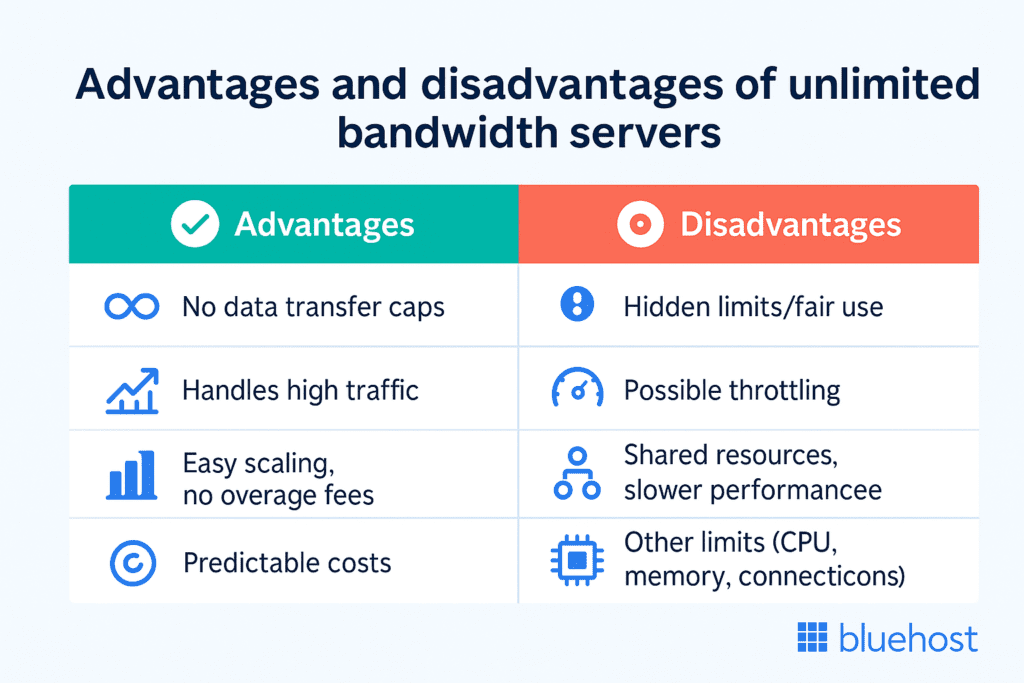
Unlimited bandwidth servers sound ideal, but like any hosting solution, they come with both benefits and trade-offs. Let’s break it down so you know exactly what to expect before choosing a plan.
Advantages
- Unlimited data transfer for high traffic hosting websites
With no bandwidth cap servers, your site can handle unlimited users, media delivery and downloads without penalty or restriction.
- Fixed monthly pricing for predictable hosting costs
Unmetered dedicated hosting eliminates overage charges, giving you full cost control—ideal for growing businesses and agencies.
- Faster performance during peak traffic surges
A steady flow of bandwidth ensures your server keeps up with demand, improving site speed, engagement and conversion rates.
- Ideal for media-heavy and resource-intensive websites
If you’re running a video platform, file-hosting site or gaming server, unlimited bandwidth keeps data flowing without delay.
- Scalable infrastructure for long-term website growth
You can add content, users or features without worrying about data transfer limits or needing to upgrade mid-cycle.
Also read: Benefits of Dedicated Server Hosting for Business
Disadvantages
- Port speed limitations affect real-time performance
Even with unmetered data, a 1Gbps or 10Gbps port sets the maximum rate at which traffic moves in and out of your server.
- Fair usage policies may restrict heavy resource usage
Some providers throttle high-traffic sites during peak hours, especially if server load impacts other customers on shared infrastructure.
- Higher starting cost compared to shared or VPS hosting
Since you’re getting a dedicated physical server and unlimited data transfer, pricing is typically higher than that of standard hosting plans.
- Requires advanced server management and monitoring
Dedicated server hosting often requires technical expertise to configure security, optimize performance and troubleshoot issues.
- Some unlimited hosting plans may include vague limitations
Read the service terms carefully. Some hosts advertise unlimited bandwidth but quietly include restrictions or clauses that limit access to a shared network.
If you choose the right hosting provider, unlimited bandwidth becomes a competitive advantage, giving your website room to grow and perform under pressure.
Top providers offering dedicated servers with unmetered bandwidth in 2026
Choosing the right provider for dedicated servers with unmetered bandwidth can significantly impact your site’s performance under pressure. Whether you’re running a high-traffic blog, SaaS platform or eCommerce store, you need hosting that’s fast, reliable and built to scale. Here’s a comparison of the top providers that offer powerful unmetered plans:
Bluehost
When you’re building something that demands speed, uptime and full control, not just any hosting plan will do. That’s where Bluehost comes in—offering dedicated servers tailored for websites and applications that simply can’t afford slowdowns.
We’re trusted by over 5 million WordPress users and for good reason. Our platform is designed to scale with your business and adapt to your performance needs. Whether you’re managing an eCommerce site, a SaaS product, or client websites, Bluehost’s dedicated hosting meets demanding performance needs.
Key features:
- Next-gen Dell servers powered by AMD EPYC processors
- DDR5 RAM for high-speed memory handling
- NVMe SSD storage (up to 2TB) for ultra-fast data access
- Unmetered bandwidth on 1Gbps ports—ideal for traffic-heavy workloads
- Free domain and SSL certificate in the first year
- 3 dedicated IPs, full root access and optional free site migration
- 24/7 dedicated hosting support for setup, performance and security
Pros:
- Built-in Bluehost Control Panel
- Optimized for WordPress and WooCommerce
- Hardware designed to scale with traffic
Cons:
- 10Gbps port speeds not yet available
Here’s a side-by-side look at our latest dedicated hosting options. Each plan is crafted to meet different performance levels. So you can pick the one that matches your traffic, speed and storage needs:
| Plan name | CPU | RAM | Storage | Bandwidth | Dedicated IPs | Starting price* (36-mo term) |
| Standard NVMe 32 | 8-core AMD EPYC | 32 GB DDR5 | 1000 GB NVMe | Unmetered (1Gbps) | 3 | $141.19 (renews at $188.79) |
| Enhanced NVMe 64 | 16-core AMD EPYC | 64 GB DDR5 | 2000 GB NVMe | Unmetered (1Gbps) | 3 | $217.19 (renews at $271.19) |
| Premium NVMe 128 | 24-core AMD EPYC | 128 GB DDR5 | 3000 GB NVMe | Unmetered (1Gbps) | 3 | $312.19 (renews at $391.19) |
*Note: Pricing as of June 2025 and may change over time. For the most current rates, please visit the Bluehost dedicated server pricing page.
All plans include unmetered bandwidth, full root access and dedicated support. Choose more cores and RAM as your traffic and workload scale.
Your perfect server is ready—don’t let performance bottlenecks hold you back. Launch your dedicated hosting with Bluehost now and power up your online business.
Liquid Web
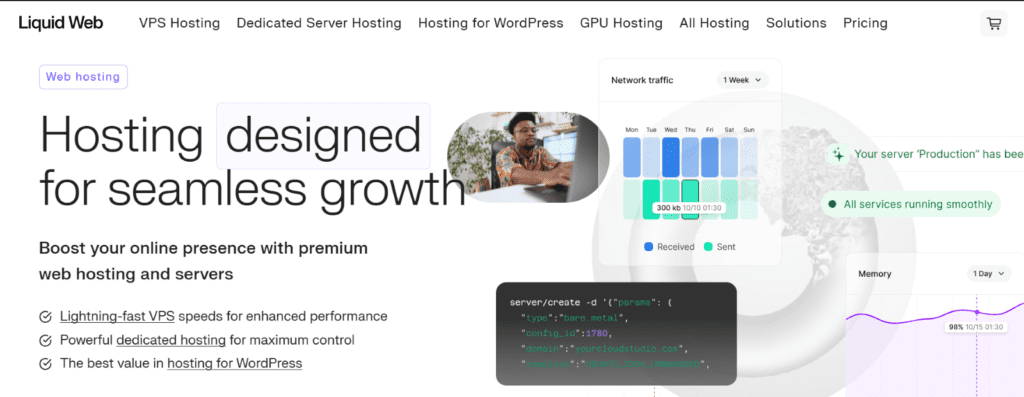
Liquid Web has built a reputation around managed hosting and enterprise-level service. Liquid Web caters primarily to businesses with large-scale infrastructure needs and complex configurations. Their dedicated servers offer flexibility and performance, but their fully managed model can come with a steeper price tag and less direct control for developers who prefer hands-on access.
Key features:
- Unmetered bandwidth on 1Gbps ports
- Intel Xeon Gold or Silver processors with RAID-capable storage
- Multiple global data centers
- 100% network uptime SLA
- Advanced security and threat monitoring
- 24/7 access to their managed support team
Pros:
- Enterprise-grade infrastructure
- Best-in-class uptime guarantee
Cons:
- Higher cost compared to unmanaged options
- Less flexibility for DIY server admins
Pricing:
- Starts around $44/month
OVHcloud
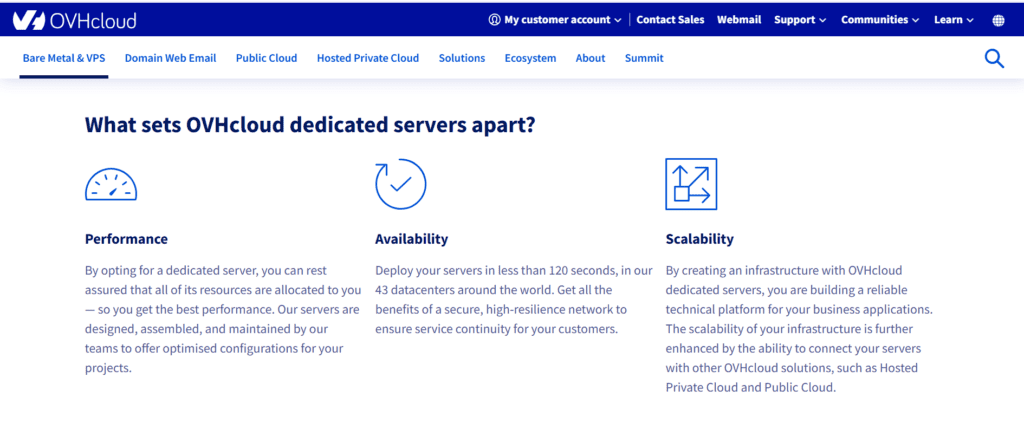
OVHcloud is well-known in the hosting world for offering affordable, customizable dedicated servers across Europe, North America and the Asia-Pacific region. With a wide range of configurations and transparent pricing, OVHcloud appeals to developers and startups looking for budget-friendly infrastructure.
Key features:
- Unmetered bandwidth starting at 500Mbps, with options up to 1Gbps
- Global data center availability with anti-DDoS protection included
- Custom server builds with scalable RAM and storage options
- Root access and automation tools for developers
- Affordable monthly pricing with minimal upfront cost
Pros:
- Competitive pricing
- Built-in security tools included
Cons:
- Slower support response times
- Limited managed service options
Pricing:
- Starts around $60.80/month
Hetzner
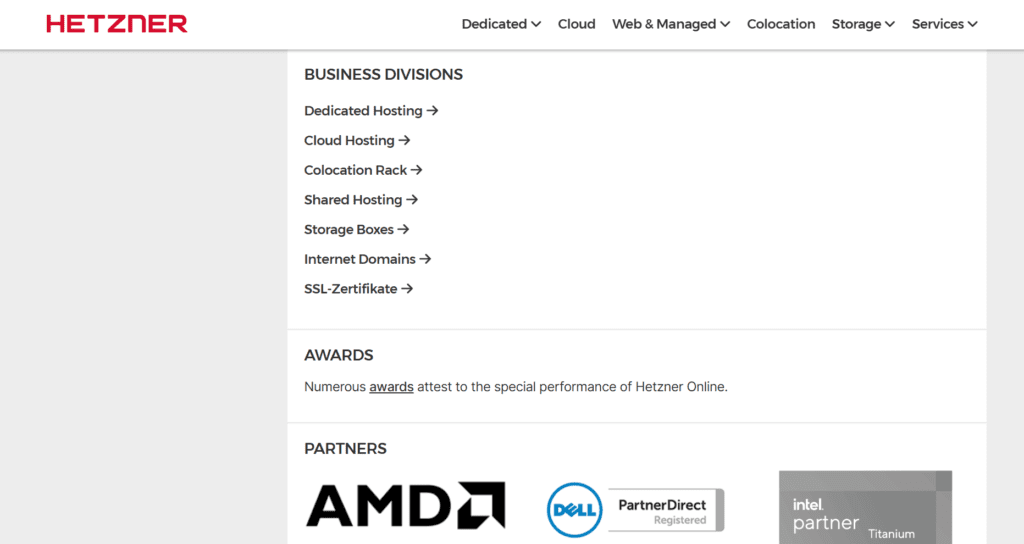
Hetzner is a German-based hosting provider known for delivering powerful bare-metal servers at competitive prices. Hetzner is especially popular among European developers and technical users who seek raw performance and are willing to take a more hands-on approach.
Key features:
- Unmetered bandwidth with 1Gbps port speeds
- Intel and AMD hardware options with flexible configurations
- Fully root-accessible servers
- Automated deployment and server management tools
- Affordable entry-level pricing
Pros:
- Low-cost entry-level plans
- Reliable hardware and network
Cons:
- No US data centers
- Limited customer support for non-technical users
Pricing:
- Starts at $42.96/month
Hostwinds
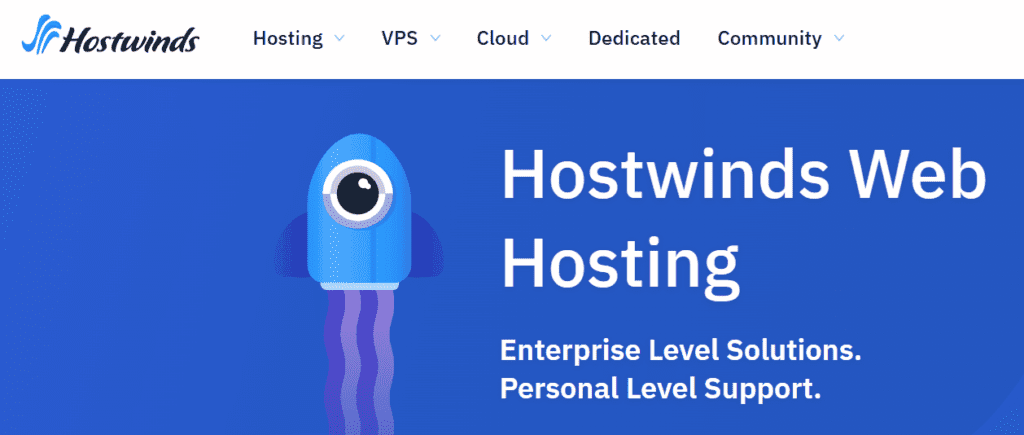
Hostwinds is a US-based hosting provider offering a wide range of customizable server options, including unmetered bandwidth dedicated servers. Hostwinds has a flexible platform with both unmanaged and managed plans, making it appealing to users who want granular control over their setup.
Key features:
- Unmetered bandwidth on 1Gbps ports
- Custom server configurations with SSD and RAID options
- Choice of operating systems (Linux or Windows)
- Nightly backups and proactive monitoring
- Optional fully managed services for added convenience
Pros:
- Granular hardware customization
- Backup and recovery included
Cons:
- UI and documentation could be better
- Additional costs for support tiers
Pricing:
- Starts at $122/month
ServerMania
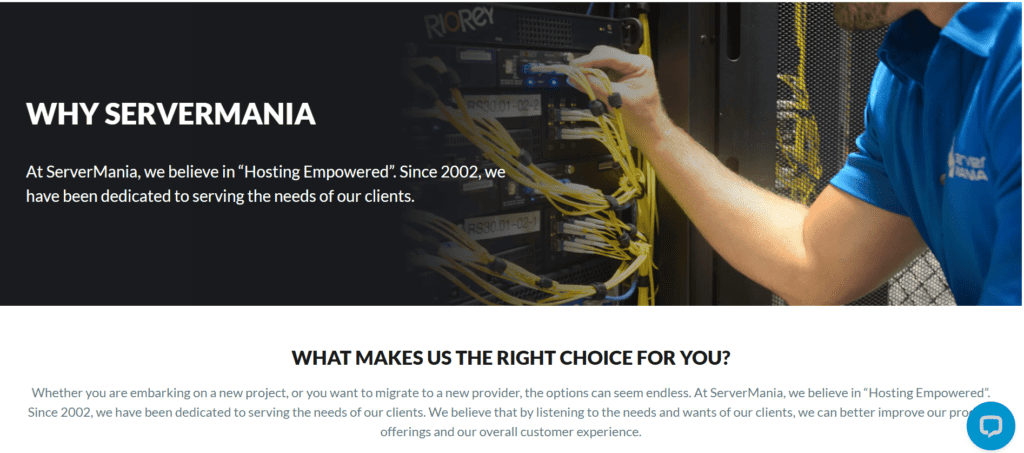
ServerMania targets high-performance use cases with dedicated servers that support massive bandwidth and custom architecture. The ServerMania platform is designed for businesses running intensive applications that demand both speed and control at scale.
Key features:
- Unmetered bandwidth available up to 10Gbps
- Fully customizable bare-metal servers
- Global data center presence (US, UK, Canada, more)
- SLA-backed 15-minute response time for support tickets
- Managed firewall and DDoS protection add-ons
Pros:
- Ideal for video streaming, gaming and SaaS apps
- High network throughput
Cons:
- Premium pricing at higher speeds
- Managed services cost extra
Pricing:
- Starts around $179/month
DreamHost
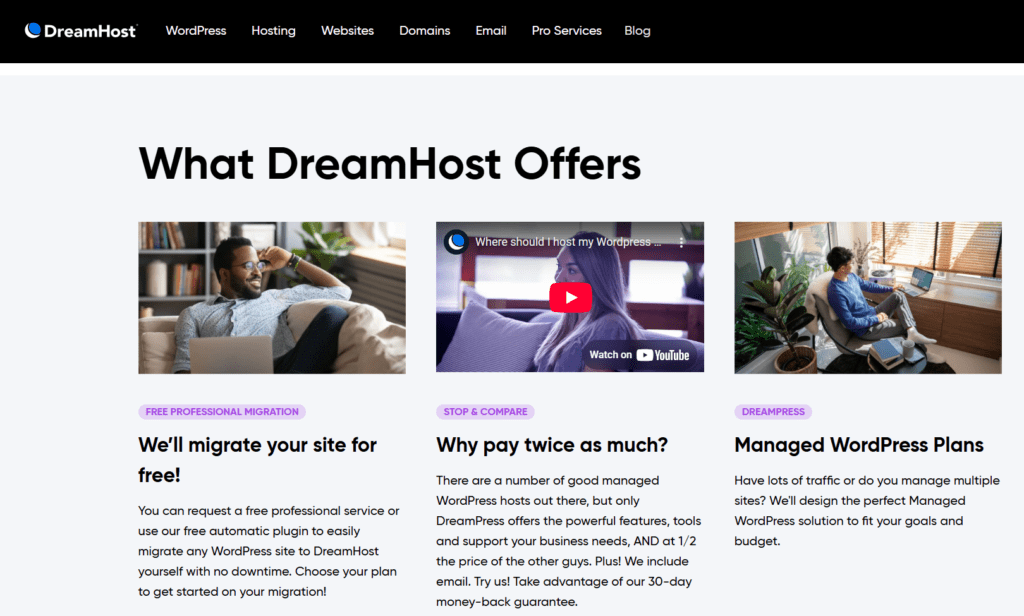
DreamHost is a long-standing player in the hosting space, known for its developer-friendly tools and straightforward pricing. DreamHost dedicated servers are primarily designed for experienced users who require open configurations and control over their backend environments.
Key features:
- Unmetered bandwidth with 1Gbps port speed
- Intel Xeon processors with SSD storage
- Full root and shell access for developers
- Unlimited MySQL databases and scalable storage
- 24/7 ticket-based technical support
Pros:
- Great for Linux users
- Clean, no-nonsense pricing
Cons:
- No phone or live chat support
- Minimal management tools
Pricing:
- Starts at $199/month (Standard plan)
Ultahost
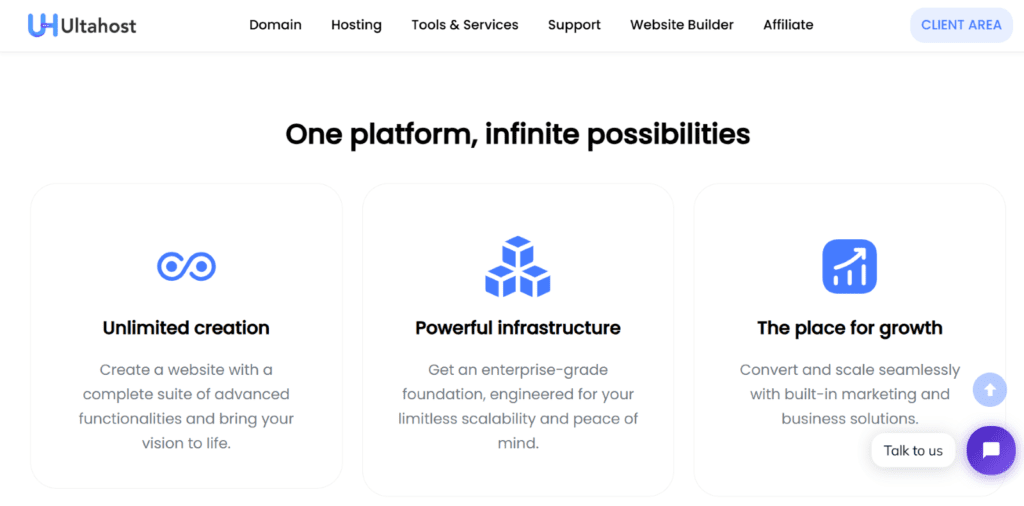
Ultahost is a newer but fast-growing provider offering feature-rich dedicated hosting at competitive prices. Ultahost is popular among freelancers, agencies and small businesses looking for solid specs with built-in conveniences.
Key features:
- Unmetered bandwidth with 1Gbps port speeds
- Full root access and support for both Linux and Windows
- Free daily backups and free server migration
- Pre-installed security and monitoring tools
- 24/7 live chat and email-based support
Pros:
- Budget-friendly with strong features
- Free migration and backup services
Cons:
- Smaller support team
- Fewer global data center locations
Pricing:
- Starts around $79.50/month
Unlimited vs unmetered: Key differences
If you’ve ever felt confused by unlimited and unmetered hosting claims, you’re not alone. Hosting providers often use these terms to sound similar, but they mean very different things when it comes to dedicated servers and bandwidth.
Understanding the difference could save you from slow performance, surprise costs or unmet expectations.
| Feature | Unlimited bandwidth | Unmetered bandwidth |
| Data transfer cap | Claimed to be unlimited (but often capped) | No cap, but speed-limited by port |
| Speed consistency | Can vary due to throttling | Consistent up to the maximum port speed |
| Throttling risk | High under fair usage | None, as long as the port speed isn’t exceeded |
| Billing predictability | May include overage penalties | Fixed-price billing with no usage charges |
| Ideal for | Basic websites, blogs | High traffic hosting, file-heavy apps |
| Hosting transparency | Often vague in policy | Clear limits based on speed, not usage |
While unlimited bandwidth might seem appealing, it often comes with hidden server limits, vague terms or slower speeds during peak usage. These hosting services are typically built on shared network infrastructure, where heavy usage may trigger throttling, even if you never expected it.
In contrast, unmetered bandwidth is about clarity and consistency. You know your exact data transfer capacity based on your port speed and you’re free to use it without worrying about penalties or slowdowns. That’s why unmetered hosting is the preferred choice for high-traffic websites, eCommerce stores, media streaming platforms or any platform where performance matters every second.
How to choose the right hosting services provider?
With so many options available, choosing the best provider for dedicated servers with unmetered bandwidth can feel overwhelming. But when you break it down by what really matters—performance, reliability, transparency—it becomes a lot easier.
Here’s how to evaluate your options before making the investment:
1. Check the quality of hardware
Your server’s CPU, RAM and storage define your performance ceiling. Look for NVMe SSDs, modern processors like AMD EPYC or Intel Xeon and scalable memory. These specs matter more than branding—they directly impact your site’s speed and responsiveness under load.
2. Verify network infrastructure and uptime
Unmetered bandwidth means nothing without a strong network infrastructure. Prioritize providers with 1Gbps or 10Gbps ports, multiple upstream carriers and guaranteed uptime. If their data centers are unreliable, your website will be too.
3. Understand the support experience
Reliable server management isn’t just about automation—it’s about people. Look for 24/7 expert support, live chat access and migration assistance. Especially if you’re not a full-time server admin, quick help can make or break your experience.
We at Bluehost offer 24/7 customer support through multiple channels—including live chat and phone—to ensure help is always within reach.
4. Evaluate billing clarity and fair usage policies
Scan the fine print. Some providers claim “unlimited bandwidth” but enforce soft caps. Others charge for extras like DDoS protection or IPs. Select hosting services that offer straightforward pricing with clear and transparent terms.
5. Match features with your project scale and server hosting needs
Your infrastructure should fit your workload. A simple portfolio site may run well on VPS hosting. But if you manage multiple domains, run a high-traffic eCommerce store, or operate a SaaS platform, you’ll need more power. In these cases, only a dedicated server with unmetered bandwidth offers the flexibility and stability required.
Also read: What Is VPS Hosting? Everything You Need to Know!
6. Balance control and ease of use
Full root access is essential for total control, but not every team has the technical expertise to manage bare-metal setups. The best providers offer powerful tools and a user-friendly control panel, so you can grow without needing to outsource everything.
Final thoughts
You’ve made it to the end and now you know what unmetered bandwidth really means for dedicated server hosting in 2026.
From managing high-traffic loads to keeping performance steady during peak hours, it’s clear: the right hosting choice makes all the difference.
And if you’re looking for speed, freedom and hands-on control, we at Bluehost are ready to support your next move.
Our dedicated hosting plans combine unmetered bandwidth, NVMe SSDs and enterprise-grade hardware, all backed by 24/7 expert support.
Take the next step confidently.
Explore Bluehost dedicated hosting today and power your website without limits.
FAQs
Unmetered server bandwidth means your server can use as much data as needed without being measured by total transfer. Instead, it’s limited only by your port speed (like 1Gbps), making it ideal for web hosting that demands flexibility, scalability and consistent speed.
Yes. Unmetered bandwidth is often more transparent and reliable. It gives you the ability to scale traffic without surprise overages, unlike some “unlimited” plans that include hidden restrictions in the default fair usage policy.
This setup is ideal for websites requiring secure, high-speed data delivery, such as eCommerce, SaaS, large databases, media distribution platforms and agencies. If your solution needs capacity and uptime, unmetered dedicated servers are built for it.
Yes. We at Bluehost offer dedicated hosting solutions with unmetered bandwidth on 1Gbps ports. Combined with NVMe SSDs, secure infrastructure and 24/7 support, these plans ensure significant performance advantages for serious websites and applications.
A 1Gbps unmetered port can manage over 300TB monthly — perfect for content distribution, video platforms or sites with global reach. The actual throughput depends on the port speed, not on a fixed data cap, giving you freedom to grow.
Yes. While shared web hosting is cost-effective, it’s not ideal for high-traffic or performance-critical websites. Dedicated servers with unmetered bandwidth offer more control, faster speeds, and better uptime—making them the preferred choice for business-critical platforms.
Yes, but with limits. Some virtual server (VPS) plans offer unmetered bandwidth, but they often share port capacity. For guaranteed performance, a dedicated server with unmetered access provides better control and true isolation from other users.
Absolutely. If your VPS hosting no longer meets your performance or traffic demands, upgrading to a dedicated server with unmetered bandwidth provides more capacity, isolation and great performance, especially for high-growth sites or apps.
Not always. Some hosting providers offer shared connections, which can fluctuate during peak usage. For consistent performance, choose a dedicated hosting plan with guaranteed bandwidth—this ensures you receive a fixed data transfer rate regardless of other users’ activity.
A virtual server shares hardware with others and can be affected by neighboring workloads. A physical server, on the other hand, is fully isolated and delivers better performance for high-traffic hosting. For websites with demanding traffic loads, dedicated physical servers with unmetered bandwidth are the better choice.
A 1Gbps port is sufficient for most sites, but 10Gbps is better for high-demand video, gaming, and global platforms.
Some plans impose throttling or “fair use” policies that reduce your speed during heavy traffic periods.



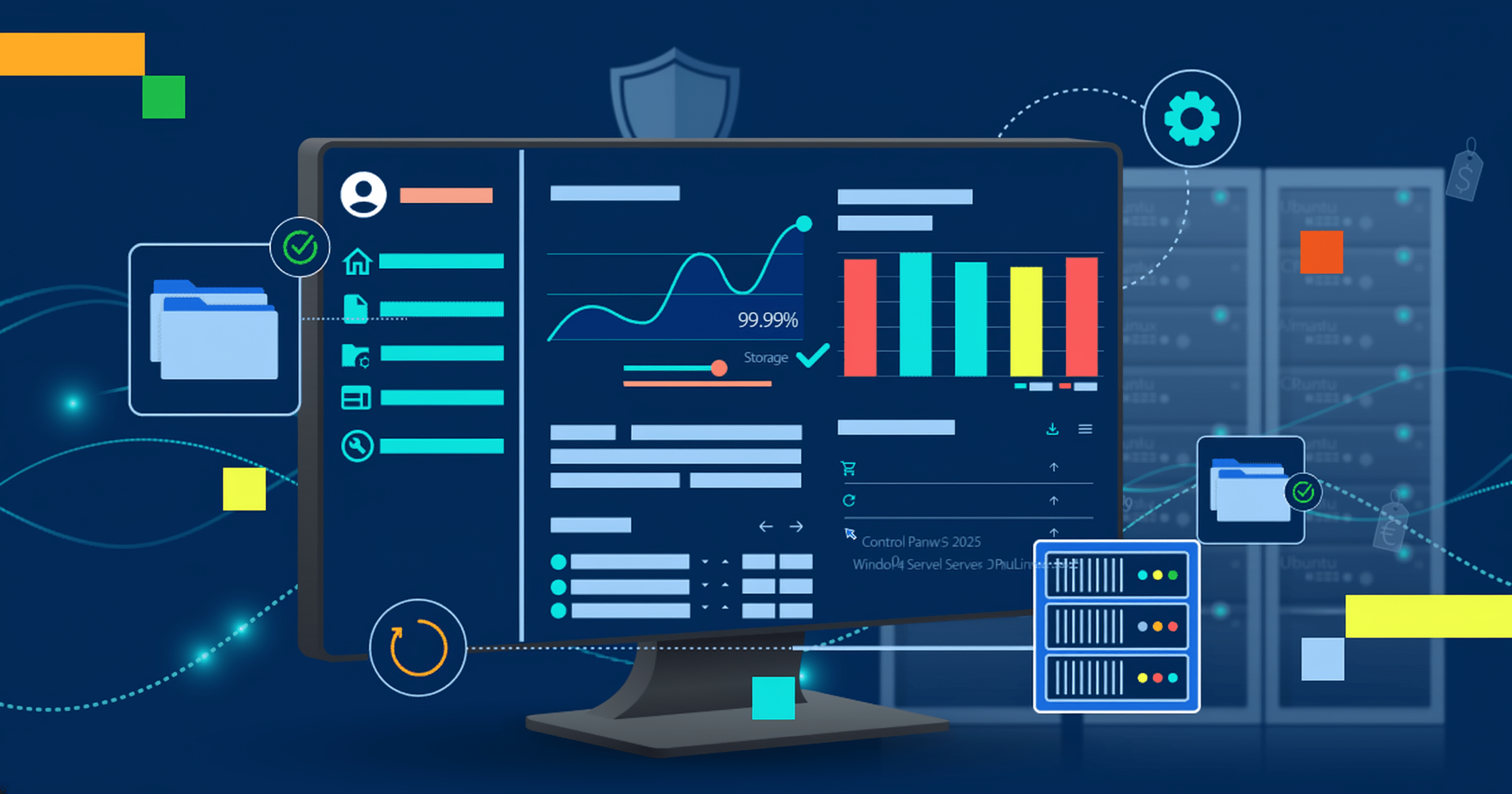
Write A Comment